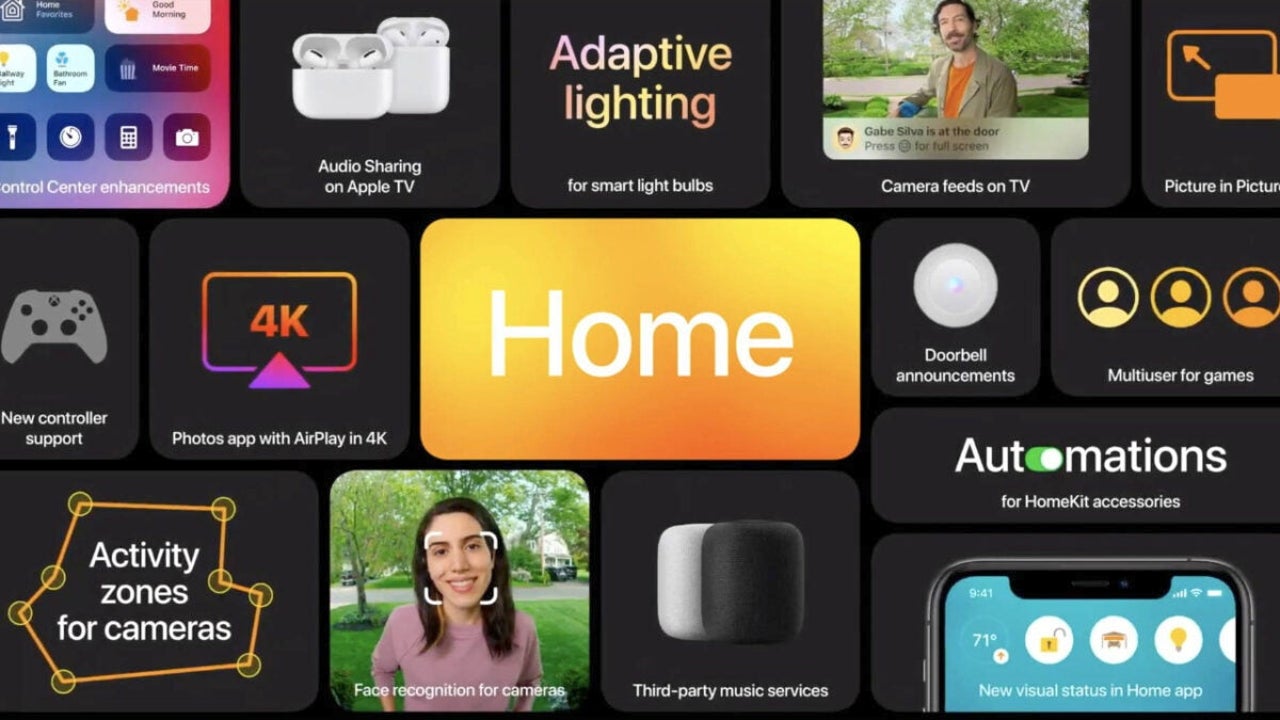The Apple security camera will be able to recognize us by our height and build without seeing our face
A basic mechanism for security and also key for Apple Intelligence

- November 27, 2024
- Updated: July 1, 2025 at 10:41 PM

Lately, we are hearing a good amount of rumors about Apple’s security camera. Now we have something more. With the expected arrival in 2026, the Cupertino company would be investigating how to make the system capable of recognizing and responding to us temporarily even if it cannot see our face. This is revealed by the recent patent that Apple has obtained, which could enable its future camera to identify us through an analysis of variables such as our height, build, and even the way we walk.
Apple’s innovation: beyond facial recognition
Most security cameras already integrate artificial intelligence functions, such as motion detection or even facial recognition. However, Apple’s camera seems to want to take these capabilities to a new level. As described in the patent (via Patently Apple), the device would be capable of associating information about height, body shape, and even movement pattern with a specific individual, allowing us to be identified even if our face is not visible.
The applications of this system are varied, and all are truly interesting. On one hand, the camera can detect a family member while walking away and, instead of considering this person as a stranger and notifying us, it could accurately confirm their identity. Conversely, an unrecognized person could trigger the relevant alerts, among other security measures.
On the other hand, personalization in the responses and the ability of this device to, through Apple Intelligence, take into account the personal context of each user would greatly improve. If we add to that voice recognition—and also facial recognition when visible—it is clear that Apple wants to achieve a completely personal device, even when its use is shared among the whole family.
As described in the patent, the data stored about our physical characteristics would be kept only for the necessary time and stored only on the device. This, just like Touch ID, Face ID, or Optic ID, guarantees our privacy.
As we always say in these circumstances, while the registration of this patent is tangible proof of Apple’s interest in security cameras, it is also true that a patent does not guarantee that this product will reach the market.
If its arrival is officially confirmed, what is clear is that Apple’s home automation—and its new control center for it—is going to go far beyond what similar solutions currently offer. An approach where Apple’s artificial intelligence can do what already makes it unique, adapt to each of us and to our personal context, when it comes to solving our doubts or helping us automate actions.
A very interesting approach that, in view of the patent we have at hand, will endow artificial intelligence with a more human component while being much more efficient and capable for us.
Architect | Founder of hanaringo.com | Apple Technologies Trainer | Writer at Softonic and iDoo_tech, formerly at Applesfera
Latest from David Bernal Raspall
- Ceerly: Explore life through spirituality and astrology powered by cutting-edge AI tech
- The Smart Creator’s Guide to Stock Video: Get Your First 4K Clip Free
- NordLayer is the smartest way to protect our company
- What’s Changed in AutoCAD 2026 Completely Transforms Project Auditing: how we can use Activity Insights efficiently
You may also like
 News
NewsCeerly: Explore life through spirituality and astrology powered by cutting-edge AI tech
Read more
 News
NewsThe director of The Outer Worlds 2 is clear: Chrono Trigger is the best JRPG in history
Read more
- News
The CEO of OpenAI says that if someone commits suicide because of ChatGPT, it is the deceased's fault, as seeking advice on such matters is an "improper use"
Read more
 News
NewsThe Duffer Brothers recommend you rewatch these episodes to prepare for the fifth season of Stranger Things
Read more
 News
NewsMacaulay Culkin wants to make a new Home Alone movie, but with a very different tone from the previous ones
Read more
 News
NewsDenzel Washington accepted the role for one of his most iconic movies at the suggestion of his son
Read more